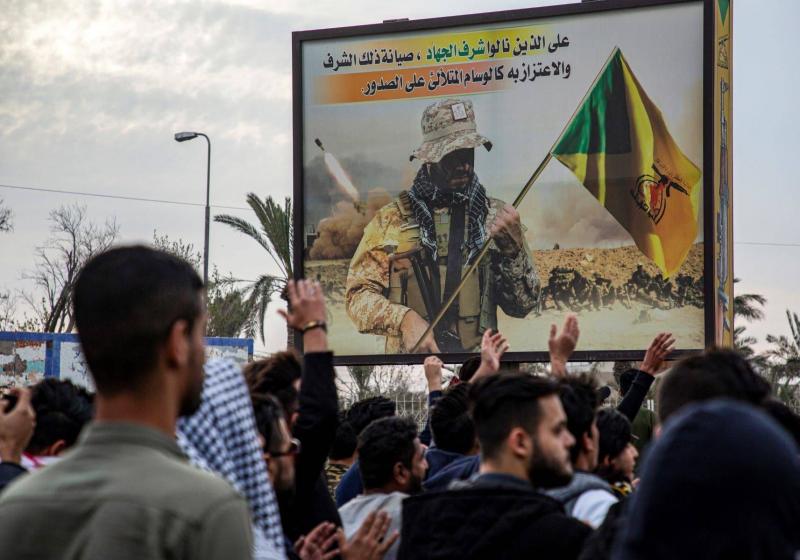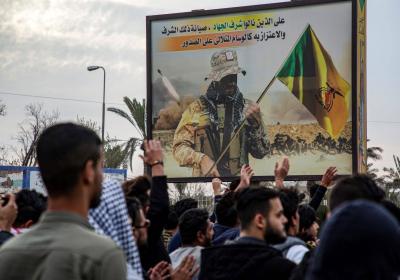Under the title "Chaos or Participation in the Government… The Militias' Message in Iraq," the Al Arabiya website reported that the aftermath of the assassination attempt on Iraqi Prime Minister Mustafa al-Kadhimi early last Sunday continues to cast a shadow over the political scene in the country, particularly regarding the formation of the upcoming government. Iranian-backed militias are trying to impose their agendas on the political landscape, threatening chaos despite a visit from the Commander of the Quds Force, Ismail Qaani, who urged them to calm down according to information from Al Arabiya/Al Hadath yesterday.
Several observers noted that the targeting of al-Kadhimi's home in the Green Zone in central Baghdad highlights how militias pose a threat to Iraqi official institutions. In this context, Hamdi Malik, a militia expert at the Washington Institute for Near East Policy, told the Wall Street Journal, "The Iranian-backed militias have sent a very clear message that they are ready to create chaos if they are not allowed to participate in the formation of the government."
Ihsan al-Shammari, head of the Iraqi Center for Political Thought, mentioned from Baghdad that "Qaani seems to have lost control over some of those groups and factions that orbit around Iran."
### Counterproductive Results?
Lahib Haygel, a senior analyst at the International Crisis Group, considered that the drones launched by the "loyalist" militias targeting al-Kadhimi have harmed them more than benefited them. Additionally, several observers of the Iraqi situation in Washington believe that this attempt might have counterproductive results and give new momentum to al-Kadhimi, potentially leading him to a second governmental term as well.
### Meetings of the Coordination Framework
However, the outcome of the "Coordination Framework" meeting held yesterday, which included the President of Iraq, the Prime Minister, the President of the Supreme Judicial Council, and several political leaders in the country, may indicate upcoming complications. During this meeting, an agreement was reached to seek legal solutions to the "election results" crisis, which might imply a retreat from the government's previous declaration that the elections were fair and their results stable, or perhaps some sort of settlement. They also agreed to condemn the targeting of al-Kadhimi’s home and to continue the investigation.
It is noteworthy that Iraqi security officials and sources close to the armed groups previously informed Reuters that the targeting of al-Kadhimi came from an armed group supported by Tehran, which could be Asa'ib Ahl al-Haq or Hezbollah Brigades. These two factions had previously threatened to hold accountable those involved in confronting their supporters who have been protesting for two weeks around the Green Zone against the results of the parliamentary elections that took place on the tenth of last month (October 2021), which showed a decline for the political parties and groups that represent those armed factions, especially the Fatah Alliance, which lost dozens of parliamentary seats.
On the last Friday and Saturday, clashes erupted between security forces and these protesters, resulting in one death, prompting the leader of Asa'ib Ahl al-Haq, Qais al-Khazali, to directly accuse the Prime Minister of involvement, while a spokesperson for Hezbollah described him as the "former Prime Minister."
These developments come as many Iraqis fear that tensions between the main Shiite factions, which dominate several institutions and also boast armed wings, could escalate into widespread sectarian conflict if more such incidents occur.




